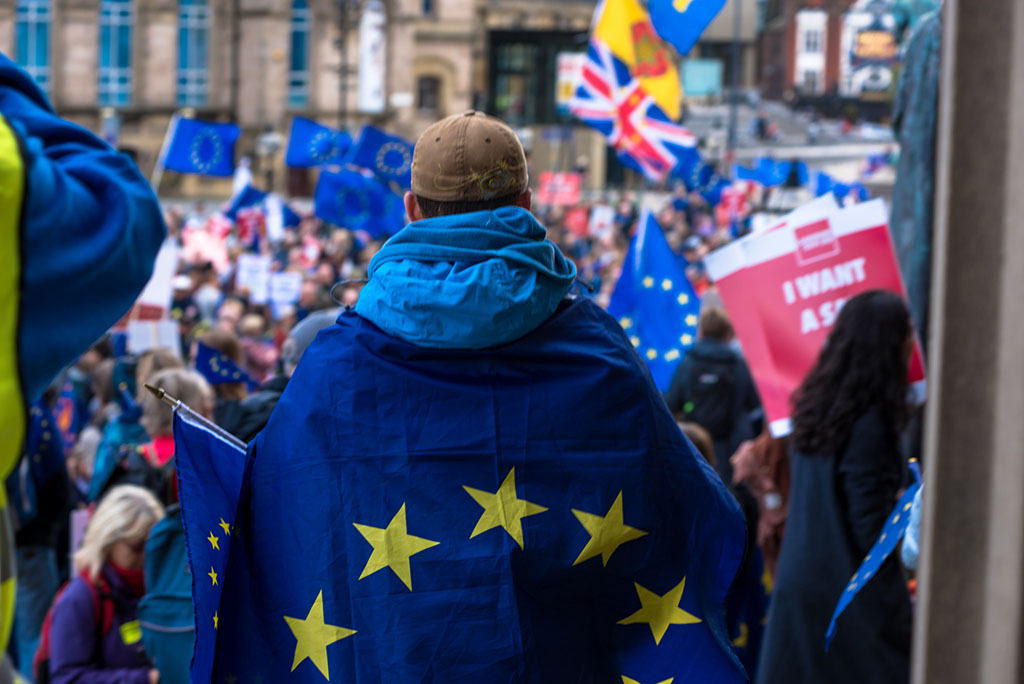
The prospect is again being raised of Brexit not taking place and the UK remaining in the EU. Negotiations are at an impasse, the opposition Labour Party’s attitude has changed and public opinion is shifting. The motion passed at the annual Labour Party conference in Liverpool last week leaves ‘all options open’, including, unless there is an early election, a ‘public vote on the terms of Brexit’, on the conditions of withdrawal. The Labour leader, Jeremy Corbyn, has made it clear that he will accept neither leaving without a deal with the UE –which would be disastrous– nor what Theresa May is currently offering. In the absence of a general election he will call for a referendum, although he is reluctant to refer to it as such.
Corbyn did not go as far as the shadow Brexit Secretary, Sir Keir Starmer, when he declared that ‘nobody is ruling out Remain as an option’. The assembled delegates gave the announcement a rapturous reception, although admittedly the delegates are not the voters. According to one poll, 86% of Labour members want another referendum, but in many constituencies won by the Labour Party in 2017 there were clear pro-Brexit majorities in the 2016 referendum. Corbyn knows this, hence his caution, particularly given his own personal reservations about the EU. To achieve its goal, however, Labour would need to rely on the support of Tory MPs opposed to Brexit to secure the parliamentary defeat of any deal May reaches with the EU.
The point is that we can no longer rule out either an election that changes the current state of play or a second referendum. It is not that either will necessarily occur but that they could, and it is important such a scenario and its consequences. Of course, we would first need to clarify whether having triggered Article 50 –which, unless it is extended unanimously, falls due on the fateful date of 29 March 2019, in less than six months– the UK could revoke its decision and ‘simply’ stay. The Treaty of Lisbon is silent on what happens if a state triggers withdrawal and then changes its mind. Some experts, such as those quoted by the Brexit report drawn up by the House of Lords prior to the 2016 referendum, think it could. Other jurists are not so sure. Settling the matter would require a ruling from the EU Court of Justice.
Assuming that Article 50 can be reversed, and that British voters (this time with a greater turnout among the younger voters who abstained in 2016, and with the polls suggesting that there is now a 54% majority in favour of Remain, which is still not decisive) decide to stay, what is the scenario that would face the EU and the UK? To begin with it would be a great victory for the European idea, which would gain strength and stability. It would also be a triumph for the Brussels mode of conducting negotiations, with the Commission and Michel Barnier having played the lead role in a united front that does not countenance the four freedoms of the single market (the free movement of goods, capital, services and people) being split up at the convenience of the leaver. It would above all be a victory for economic and political rationality. Brexit is costly both for the UK and for the rest of the EU. And it is becoming increasingly clear that there is no complete solution that combines the unity of the UK, a not full participation in the European customs union (although it would not have been necessary to go to so much trouble for that) and the absence of a hard border between Northern Ireland and the Republic so as not to imperil the achievements of the peace process.
That said, the Remain option is not devoid of problems for the EU. It could prove toxic for domestic British politics. And beyond British shores, on the continent, the UK would still be divided, and therefore little given to supporting major progress in Europe. The UK is not going to become fervently pro-European just by virtue of remaining. It is clear that the rest of the EU is increasingly fragmented, and it is not only the British who reject the notion of an ‘ever closer union’ among the peoples of Europe. This despite the fact that, in terms of incorporating EU law, the British have always been more loyal and compliant than many others, including the Spanish.
While Brexit has served as a spur to enable the EU to make –modest– progress in some areas where the British had been obstructive, such as defence, the political attention of the leaders of the EU28 could turn to a new accommodation with the UK, despite the latter not being able to dictate the terms. But knowing the British, they would immediately put forward a reform agenda for the EU that would be attractive for a significant number of member states but not for the most pro-European.
There is very little time to waste but if they were to decide before next March, the British would be back to take part in the European elections in May 2019, when the rest have already agreed a new distribution of seats. Frustration with Brexit could revive the UK Independence Party (UKIP) and the more strident Brexit enthusiasts in the Conservative Party at the polls, boosting the number of Eurosceptics and xenophobes, who are set to increase significantly in the next European parliament.
And as Neal Lawson suggests, a new national agenda is needed that addresses the causes of the Brexit vote in 2016, whether cultural, demographic (including those that stem from immigration), involving social injustice, democratic, territorial or economic. This is what Corbyn is tapping into with his radical platform, which is gaining in the polls, as even part of the conservative press acknowledges.


